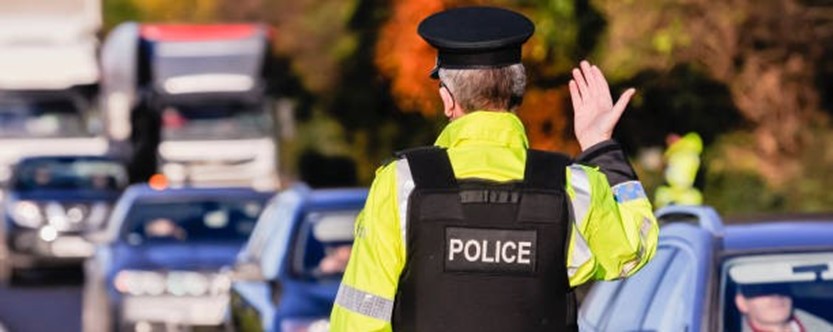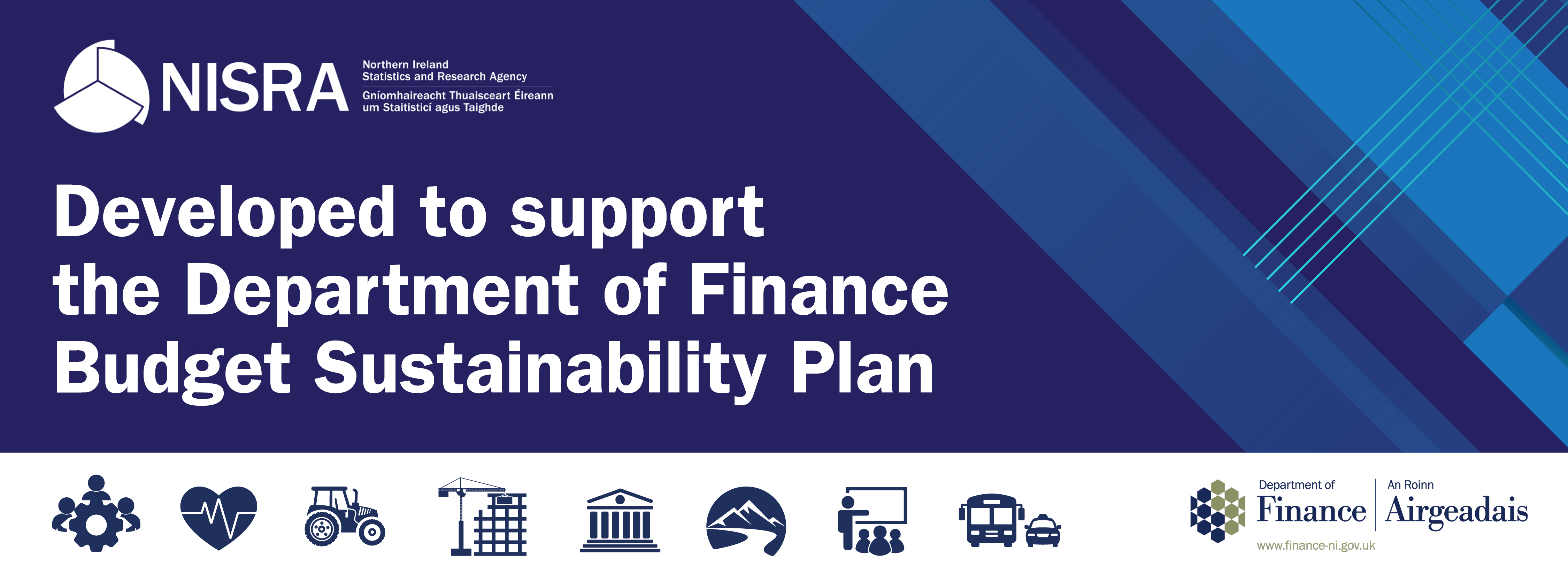Northern Ireland Executive spending - Quick read
Key statistics for
The amount of government money spent on public services in Northern Ireland in was which is the same as or to write it out in full .
If we shared that money equally between all people in NI, it would be per person. It would take around 6 months working full time to earn that much if you were paid minimum wage (which was £11.44 an hour that year).
This money is shared between all the NI government departments to spend on the areas they are responsible for.
The individual spending and main responsibilities of the nine departments headed by Ministers are shown below.
Please note the spend by the six departments which are not headed by Ministers (totalling ) are not displayed below. The breakdown of these departments can be found in the detailed page in the section 'Total NI Executive spending - detailed breakdown' under 'Non ministerial departments'.
 Health –
Health –
The Department of Health is responsible for:
- health and social care which includes hospitals, social care services, GP practices, dentistry, pharmacies, paramedics etc.
- public health (includes areas like clean air, water and food, controlling infectious diseases like Coronavirus, improving people’s health e.g. stopping smoking and so on)
- public safety which includes fire and rescue services

 Education –
Education –
The Department of Education is responsible for:
- providing for pre-school children age 0-4
- primary education
- secondary education
- special education
- youth services

 Infrastructure –
Infrastructure –
The Department for Infrastructure is responsible for:
- roads
- road safety
- public transport – bus, train, cycle lanes
- driver licensing and MOT tests
- water and sewerage
- managing flood risk from rivers and the sea

 Justice –
Justice –
The Department of Justice is responsible for:
- policing and community safety
- public legal services
- prisons
- legal aid
- youth justice
- courts and tribunals
- forensic science

 Communities –
Communities –
The Department for Communities is responsible for:
- social welfare, benefits and pensions
- housing and regeneration
- providing training and support to jobseekers and employers
- supporting local government (councils) to deliver effective public services
- sports, arts and culture
- developing voluntary and community sectors
- languages
- child support
- programs and policies that tackle inequality, poverty and social exclusion

 Economy –
Economy –
The Department for the Economy is responsible for:
- strategies and policies to improve our economy including specific areas like energy (electricity, gas and renewables), tourism, and telecoms (including broadband and mobile)
- employment and skills programmes and apprenticeships
- oversight and funding of further and higher education
- various parts of employment law
- managing and operating various EU funding programmes

 Agriculture, Environment and
Rural Affairs –
Agriculture, Environment and
Rural Affairs –
The Department of Agriculture, Environment and Rural Affairs is responsible for:
- fishing
- farming
- forestry
- protecting biodiversity
- growing crops and horticulture
- food safety
- animal welfare
- our marine environment (rivers, lakes and sea)
- pollution
- waste
- water

 Finance –
Finance –
The Department of Finance is responsible for:
- providing information on NI's public finances
- civil service finances
- public sector procurement (obtaining goods and services needed to support daily operations of public sector)
- property ratings (for rates calculations)
- property valuations
- building regulations and energy efficiency ratings
- statistics and research
- transparency and governance in government

 The Executive Office –
The Executive Office –
The Executive Office is responsible for:
- the Programme for Government - a plan that aims to make sure people of all ages and backgrounds in NI are respected and cared for, and no one is left out
- improving public services
- contributing to and overseeing policies and programmes that tackle inequality, reduce poverty and disadvantage, and promote peace and prosperity.

Additional spending
There is a second pot of money that is distributed by the NI departments which can only be used for spending on areas like benefits and pensions. That second pot was in .
These two pots are viewed separately because they are for different types of spending. Money needed to deliver the public services detailed above is more predictable and can be planned more easily than money needed for benefits and pensions.
If we add this second pot of to the for the public services above, the total comes to .
Further information
More information: Details on accessibility, sources and other further reading can be found on the detailed page.



